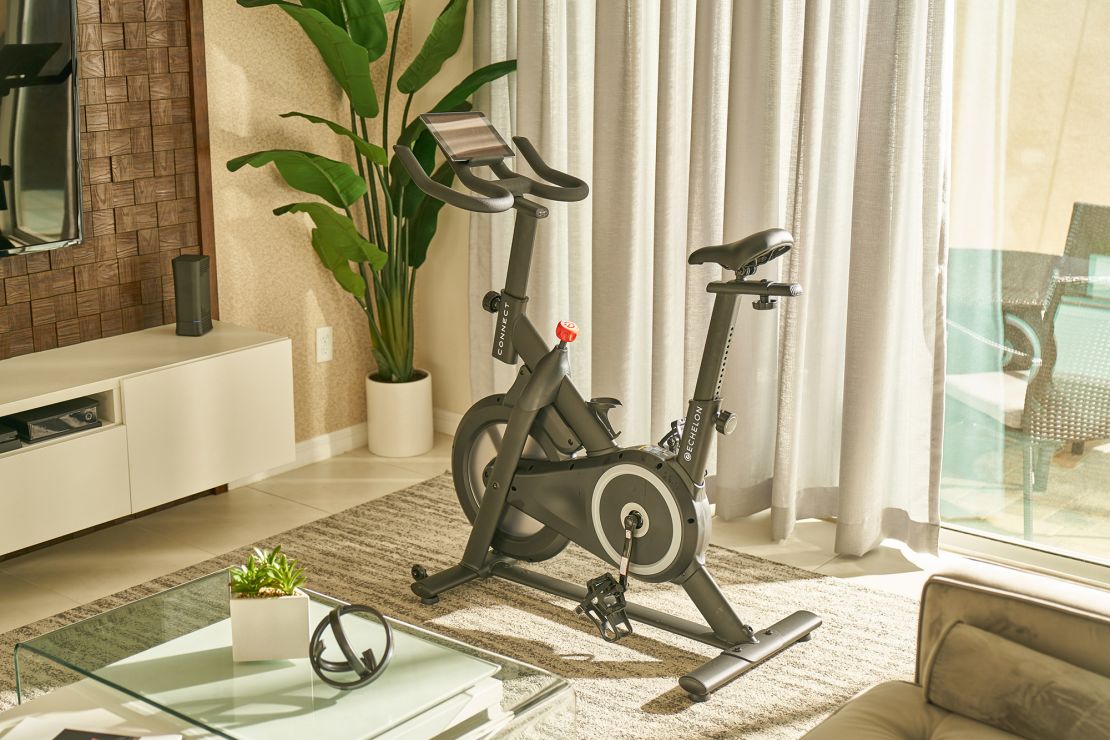Update: Amazon is distancing itself from the bike, saying in a statement that it’s “not an Amazon product or related to Amazon Prime.”
Peloton is getting some competition from Amazon, which announced a Prime-branded stationary bike.
The Prime Bike is Amazon’s first-ever connected fitness product, costing $499 — or roughly $1,500 less than Peloton’s flagship bike. Amazon’s bike has a similar look to a Peloton, but doesn’t have a screen to stream workouts.
Amazon didn’t build the bike – it partnered with fitness startup Echelon to produce a less-expensive version of its existing bikes. Non-Prime-branded models of the bike cost between $1,000 to $2,000, depending on their features.
The Prime Bike works with an app that streams fitness and cycling classes for a monthly fee. Prime Bike buyers getting a free 30-day trial. (Prime Bike users will need an iPad or laptop nearby to use the app for its cycling classes.)

Amazon also sells other similarly priced (or cheaper) stationary bikes. But it’s significant that it’s using the Prime branding and signaling it wants to make its mark into the booming at-home fitness category. Amazon sells weights and other gear under its AmazonBasics line.
For Peloton, the pandemic has been profitable. It recently reported 172% surge in sales and lopped the price of its bike by 15% and introduced a new version. A new treadmill is also on its way. Peloton shares fell as much as 4% after Amazon announced its new bike, but the stock has since recovered.
Other workout companies have surged during the pandemic, too. Tonal, a startup sometimes referred to as the Peloton of at-home strength training, recently raised $110 million in new funding and Apple (AAPL) announced last week subscription service called Fitness+ that’s compatible with the metrics tracked by the Apple (AAPL) Watch.
In June, Lululemon (LULU) announced it would purchase the startup Mirror, which sells an immersive mirror through which customers can participate in fitness classes and personal training sessions. The deal was valued at $500 million.
This is all happening while physical gyms are struggling. Town Sports, the owner of number of well-known gyms, and Flywheel Sports both filed for bankruptcy last week blaming the pandemic. Gold’s Gym and 24 Hour Fitness both went bankrupt earlier this year.
























